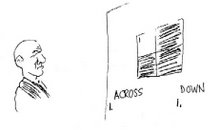Sunday, July 1, 2018
Is Trump's number up?
Six hundred days after the 2016 election, many US voters remain deeply skeptical of, if not hostile to, political polling.
The national polls in 2016 were actually fairly accurate: Hillary Clinton was supposed to win the popular vote by about three points and she ended up winning by two.
Many Americans feel that Trump is harming the country and question any survey that seems like good news for him; they believe numbers exaggerate the strength of the president’s political position.
When Trump hit a personal best 45% overall approval rating immediately after meeting “rocket bot,” boosted by a 90% approval rating among Republicans.
Last Monday, Gallup had Trump back down at 41%, as Americans learned more about his dishonest policy of separating migrant families at the US border. Aside from that, Trump’s approval rating has been “incredibly stable” within a band from about 36% to 43%.
Under normal circumstances, an overall approval rating much under 50% would spell doom for an incumbent president, ruling out re-election. And 90% in-party support is not unusual in recent presidential cycles.
Some voters find it hard to understand how Trump could maintain such strong support from Republicans. Trump is an unusual president but his robust party support is true to historical patterns.
In positive news for critics of the president, robust support from the Republican party might not be what it used to be, as the party is shrinking. Democrats have built a seven-point advantage in registered voters, according to Gallup’s tracking poll, up from two in November 2016.
“Today’s GOP is the president’s plaything.” -- George Will
Republicans are suffering high-profile defections, recently including Steve Schmidt, who ran the 2008 John McCain presidential campaign and worked in George W Bush’s White House.
In his most recent Washington Post column, George Will urged fellow Republicans to vote Democratic in the midterm elections.
“In today’s GOP, which is the president’s plaything, he is the mainstream,” Will wrote. “So, to vote against his party’s cowering congressional caucuses is to affirm the nation’s honor while quarantining him.”
But Republican defections might not be the place to focus. Probably more important to the defeat of the Trump bloc in future elections, analysts say, will be factors such as turnout among minority voters, whom Trump lost in 2016 by 53 points.
Another important group are the white, working-class Americans who voted for Barack Obama. A New York Times analysis of official voter files in three states found that almost one in four white working-class voters who supported Obama switched to Trump in 2016.
Will those voters stick with Trump? The 2016 electorate has soured on Trump. The president’s approval rating in the ‘working-class Americans‘ poll was seven points underwater, 41% a significant slide from 48%.
For some American voters across the political spectrum, the answer is simple. No matter what the numbers say: ignore the polls and vote.
Subscribe to:
Post Comments (Atom)






















No comments:
Post a Comment